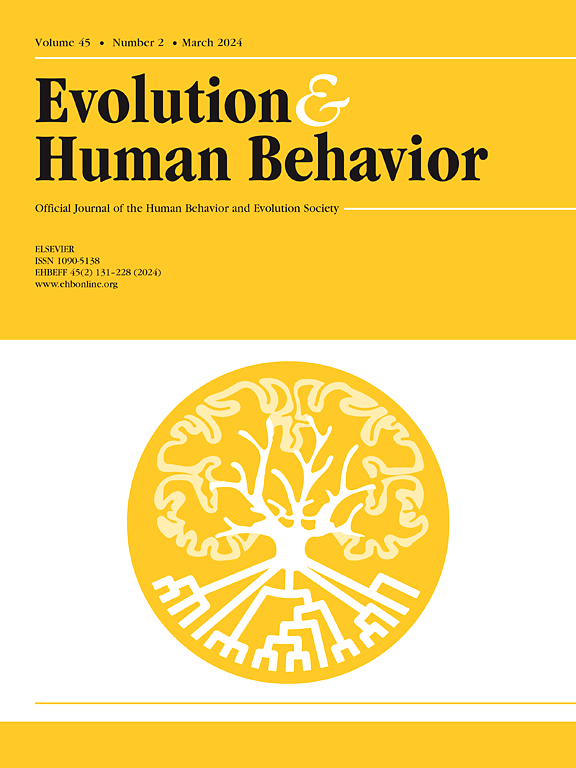生态理论与文化难题
IF 3.2
1区 心理学
Q1 BEHAVIORAL SCIENCES
引用次数: 0
摘要
文化的生态方法是最受欢迎的,因为它包含了文化遗产、环境条件和驱动变化的行动者的角色,将文化进化与跨物种的生态理论结合起来。然而,由于文化本身是共享的,因此必须考虑社会环境中的复杂因素。这里列出了其中的一些。重要的是,从生态的角度来看文化——作为认知适应产生的表现型表达,以实现增强健康的社会和环境目标——有可能解决社会学习和传播理论单独无法解决的问题:为什么一些文化创新增殖而另一些失败,为什么一些繁荣后来崩溃,为什么还有一些持续并继续形成累积文化的材料。本文章由计算机程序翻译,如有差异,请以英文原文为准。
Ecological theory and the conundrums of culture
The ecological approach to culture is most welcome as a theory that encompasses cultural legacies, environmental conditions and the role of actors in driving change, aligning cultural evolution with ecological theory across species. However, because culture is inherently shared, complex factors in the social environment must be considered. Some of these are outlined here. Importantly, approaching culture from an ecological perspective – as phenotypic expressions generated by cognitive adaptations to achieve fitness-enhancing social and environmental goals – has the potential to address questions that theories of social learning and transmission alone cannot: why some cultural innovations proliferate while others misfire, why some thrive and later collapse, and why still others endure and go on to form the stuff of cumulative culture.
求助全文
通过发布文献求助,成功后即可免费获取论文全文。
去求助
来源期刊

Evolution and Human Behavior
生物-行为科学
CiteScore
8.30
自引率
9.80%
发文量
62
审稿时长
82 days
期刊介绍:
Evolution and Human Behavior is an interdisciplinary journal, presenting research reports and theory in which evolutionary perspectives are brought to bear on the study of human behavior. It is primarily a scientific journal, but submissions from scholars in the humanities are also encouraged. Papers reporting on theoretical and empirical work on other species will be welcome if their relevance to the human animal is apparent.
 求助内容:
求助内容: 应助结果提醒方式:
应助结果提醒方式:


